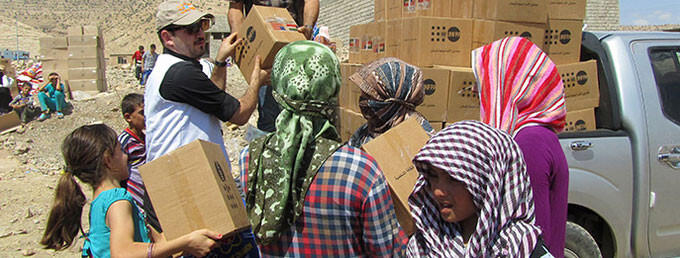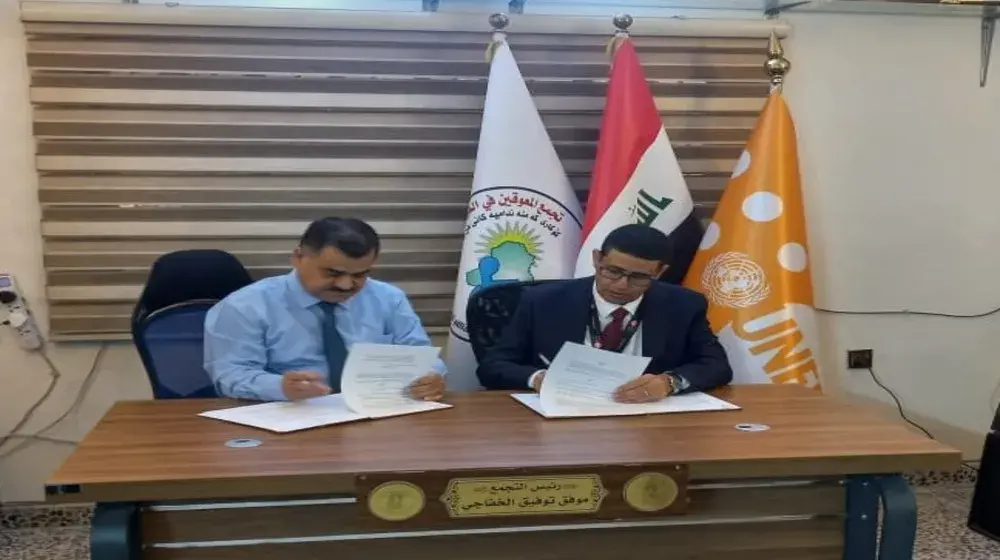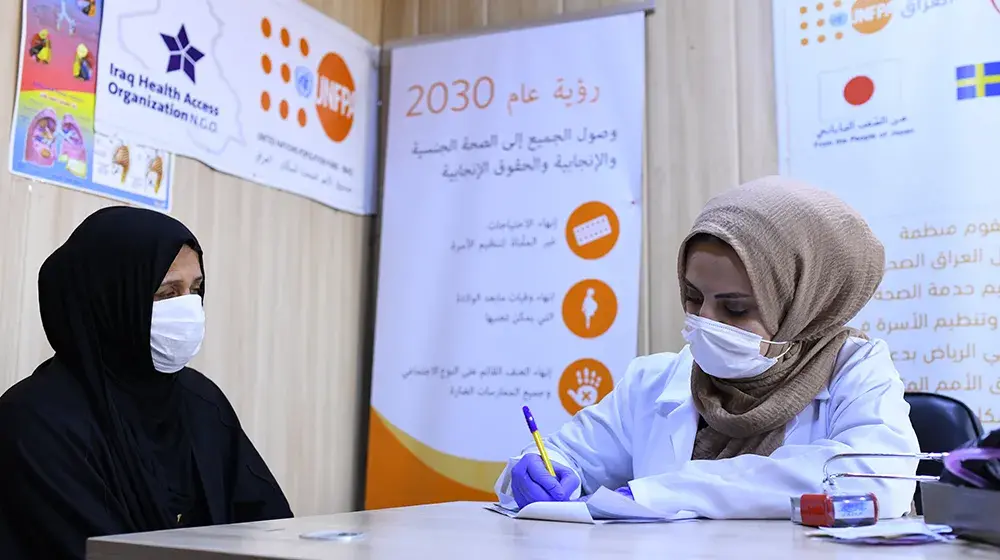UNITED NATIONS, New York – As the security situation in northern Iraq deteriorates, the humanitarian needs of women and youth are multiplying. Some 1.2 million people are believed to be internally displaced by the fighting between government forces and armed opposition groups, according to recent reporting by the UN Office for the Coordination of Humanitarian Affairs. In addition, millions more are believed to be at risk, residing in conflict-affected areas with limited access to services.
Among those who are displaced or living in conflict-affected areas, UNFPA estimates about 380,000 women, are pregnant.
Fighting rages in Sinjar
Armed opposition groups have taken control of large swaths of Iraq’s north, including parts of Sinjar District, where there has been mass displacement. Currently an estimated 50,000 to 60,000 displaced people are in Duhok, scattered over three sites, two of them camps: Sharia and Khanke. The third location is cluster of host communities in Babadra, in Shikhan. Many more are staying in host communities within Duhok. UNFPA estimates some 2,000 to 2,500 women in these areas are pregnant.
“One of the main issues that in any emergency you witness is that women’s health is neglected,” said Bakhtiar Ahmed, head of the technical department at Duhok Health Directorate.
In the past two days, UNFPA has distributed 1,000 dignity kits to women and girls in Sharia, and a further 2,000 will soon be distributed in the other sites. The kits contain essential hygiene supplies. About 1,000 items of clothing are also being distributed to women.
UNFPA is also setting up mobile clinics and is supporting the deployment of medical staff in each site to provide reproductive health services, including maternal health care and support for safe delivery.
“This material, this supplies and support, was fundamental to assure that immediate, effective response was provided to the women’s health needs,” said Dr. Ahmed.
UNFPA is also preparing to provide assistance to survivors of gender-based violence. Social workers have been mobilized for deployment to the displacement sites. They will provide psychosocial support and create awareness about the issues surrounding gender-based violence.
Scaling up response
In total, UNFPA is aiming to secure obstetric services for around 250,000 pregnant women in eight affected governorates in Iraq.
With a $10 million donation from Saudi Arabia, UNFPA is mobilizing wide-ranging support in affected areas, including assistance to some 85 hospitals and maternity centres and 207 primary health centres.
Health supplies are being distributed, including materials for complex deliveries such as equipment for Caesarean sections and blood transfusions. Basic equipment and supplies for reproductive health care and normal childbirth will also be distributed.
UNFPA is also providing multi-layered assistance to vulnerable women and girls, including survivors of violence and exclusion. Psychosocial support, life skills training and programmes to help girls stay in school have been initiated. Many of these services will be available in 15 safe spaces and community centres for women, which are being established in camps as well as in host communities in the eight governorates.




